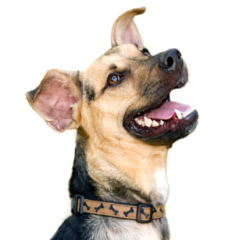SUPERBUGS, SUPER PROBLEMS Dental Disease Part 5 of 5

Antibiotic resistance is among today’s largest health threats for both humans and animals: How can you combat these ever-evolving superbugs?
In an article written by Dr. Chloe Ross, A Veterinarian in Western Australia, she writes about how antibiotics are used when they should not be or when another treatment will take care of the problem. She has a strong interest in preventive medicine, and is especially interested in the microbiome and its role in keeping a body healthy.
Antibiotics resistance is one of the biggest threats to human and animal health, and the problem is getting worse. Avoiding unnecessary antibiotic use (and making sure they’re used properly when they are essential) can help to save important antibiotics for life-threatening situations. It can also lower your dog’s exposure to a host of potential side effects.
After your vet has diagnosed an infection, he may prescribe antibiotics without much consideration toward the rise of the superbug. Rather than heading straight for the pharmaceuticals, if your pooch is otherwise well, you can try other alternative treatments.
Here are some common infections, often mistreated with antibiotics and tips for how to help fight antibiotic resistance.
Urinary Tract Infections (UTIS)Canine Infectious Respiratory Disease Complex (CIRDC)Skin InfectionsGastrointestinal UpsetDental Disease
I will touch on each of these topics over five newsletters as to not make each article too long.
DENTAL DISEASE
Dental disease is very common in dogs, especially those on kibble diets. Within 48 hours of food residue sitting on the teeth, the bacteria create a mass of plaque that is on its way to becoming cemented calculus. Calculus surrounds the tooth in a fortress that protects bacteria that eat the root of the tooth. This often causes discolored teeth, gum recession, and can lead to tooth root abscesses, which have been known to fracture jaws.
Antibiotics are often prescribed by vets in lieu of physical removal of the calculus. They actually do very little to cure, prevent or even give the patient comfort. Antibiotics have little effect on the organisms in the mouth, as the bacteria is often locked away in that calculus fortress.
Another reason to avoid antibiotics is that the problems associated with dental disease completely resolve with physical removal of the calculus, along with any tooth that has become badly infected.Please note that once calculus has cemented itself around your dog’s teeth, it’s often very hard to remove and must be done professionally. In this case, prevention is vastly better than cure.
Dental disease is preventable with daily brushing and a whole food, natural, balanced diet. Although often touted by manufacturers as a tool to clean teeth, kibble is not a cleaner, so a processed diet often leads to increased inflammation. It’s much better to try some of the following alternatives:
Brushing your dog’s teeth daily. Toothpaste isn’t as important as physical removal of the plaque before it hardens, so be sure to brush the whole mouth every day.
- Feed a whole food, balanced, raw diet (including raw bones for chewing). This helps to balance the microbiome of the mouth, and provides a variety of textures to help physically clean the teeth.
- Give probiotics to restore populations of healthy bacteria in the mouth.
I hope I’ve convinced you to avoid antibiotics whenever you can. Try different therapies at home, and encourage an open dialogue with your vet about inappropriate use of antibiotics. If he does recommend treatment, ask why.
Avoiding antibiotics means being proactive when it comes to your dog’s healthcare. It’s important to be vigilant and seek assistance if she seems ill.
If antibiotics are truly necessary, try to use short courses of narrow spectrum drugs. Older therapies work best to avoid antibiotic resistance and excessive harm to your dog’s microbiome. And if you do have to use antibiotics, visit dogsnaturallymagazine.com and search for “antibiotic damage” to learn how to clean up the damage.
Dr. Chloe Ross, “Superbugs, Super Problems” Dogs Naturally Magazine, September – October 2019, pp 9-11
As a side note, doggie toothpaste isn’t always necessary. But two reasons to use doggie toothpaste: One it generally taste good so will allow you to put a toothbrush in your dog’s mouth. Second, there is enzymatic toothpastes that will help to remove and keep plaque on your dog’s teeth. Also keep in mind that the earlier you start brushing the easier it is.
With puppies, it’s more about getting the toothbrush in their mouth and moving it around rather than the actual act of brushing their teeth. By the time their puppy teeth fall out, they will be in a good routine to get their teeth brushed. If you choose to feed a balanced raw diet, keep in mind that Answers Raw diets are fermented and contain probiotics and enzymes which is beneficial both in the mouth and the gut.
Recommended Posts
FEBRUARY IS NATIONAL PET DENTAL HEALTH MONTH
February 03, 2024
National Pet Obesity Awareness Day
October 11, 2023
Vitamin D Deficiency in Cats and Dog
September 01, 2023
